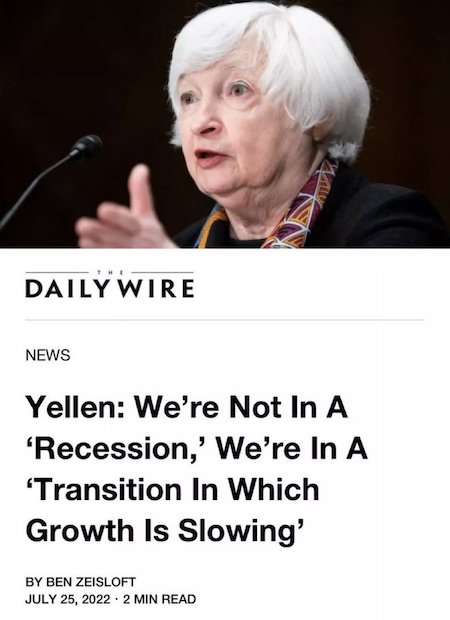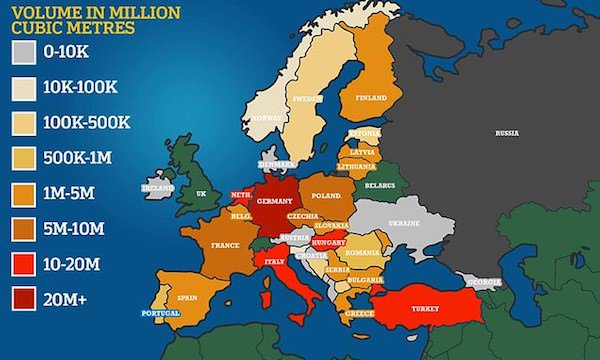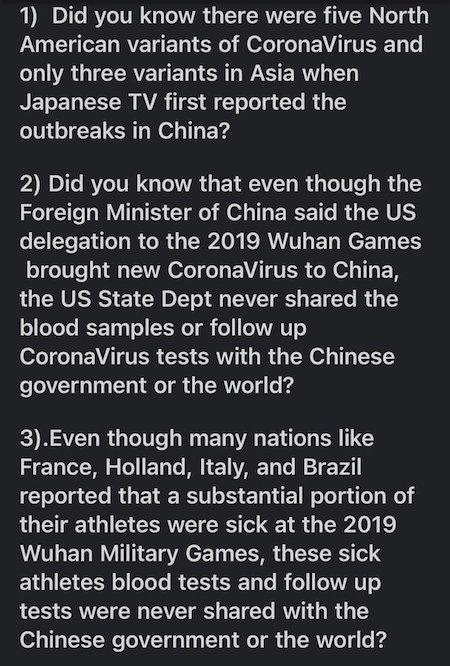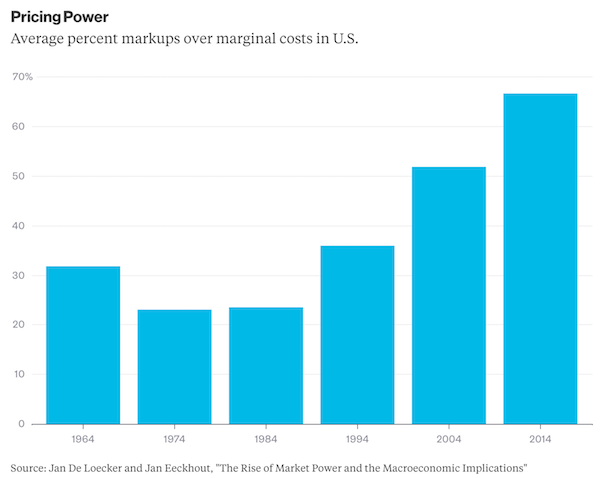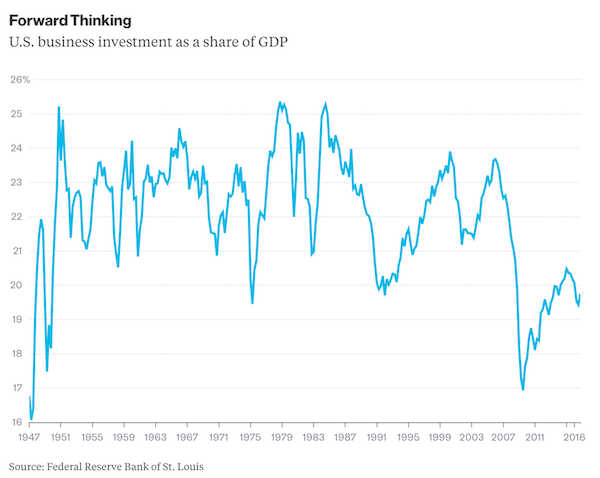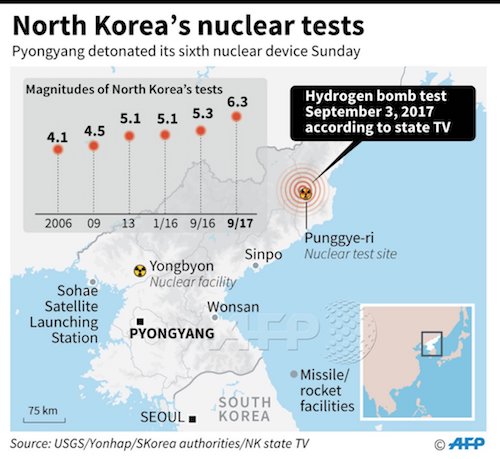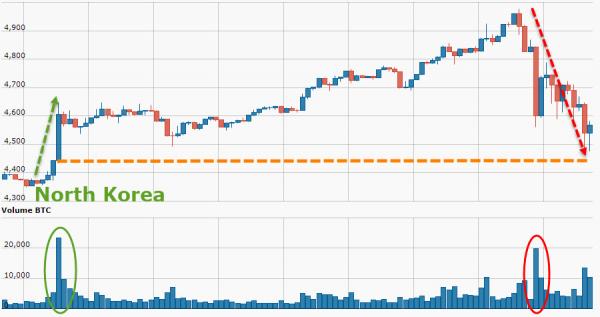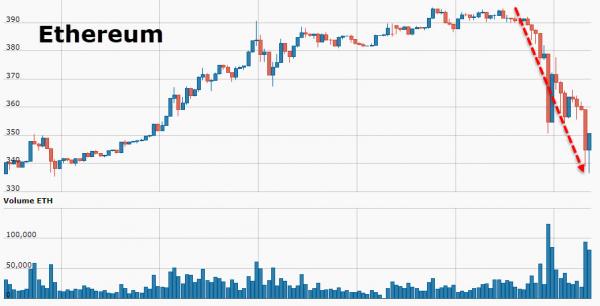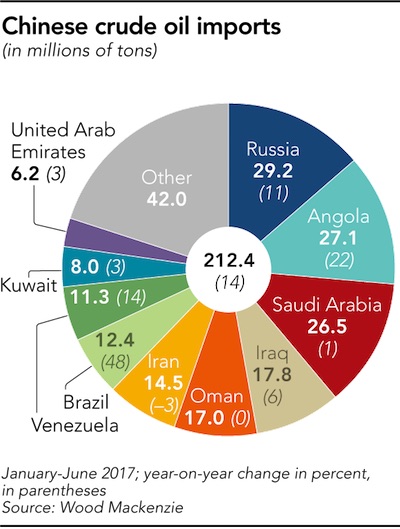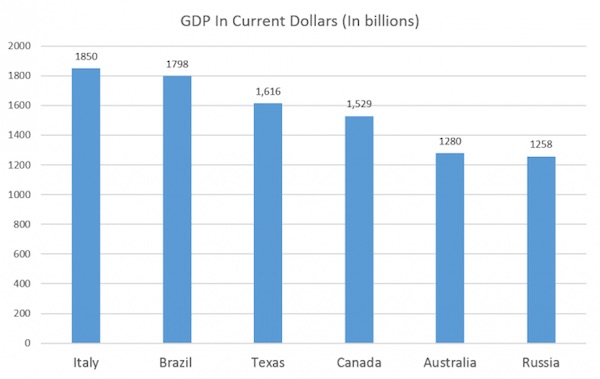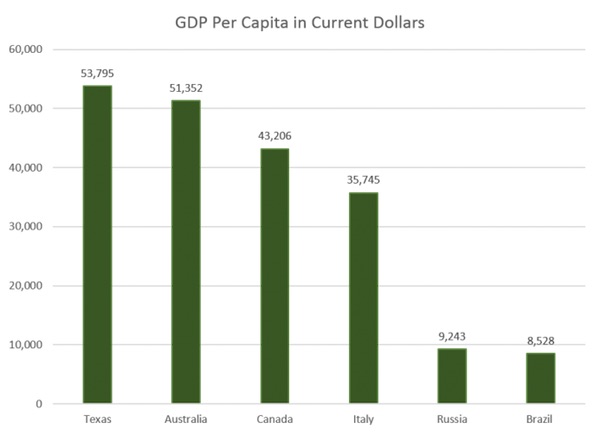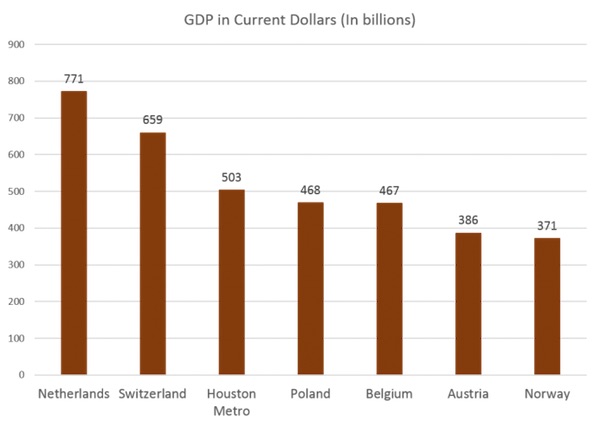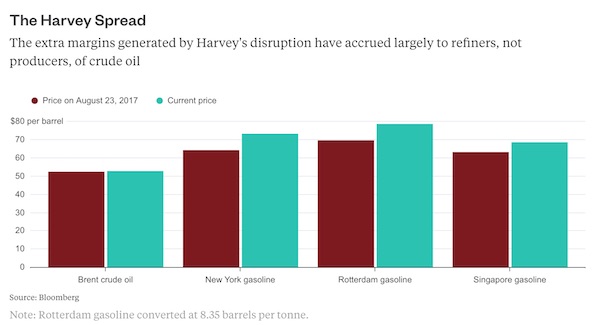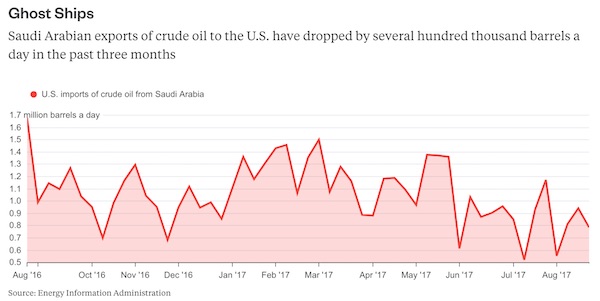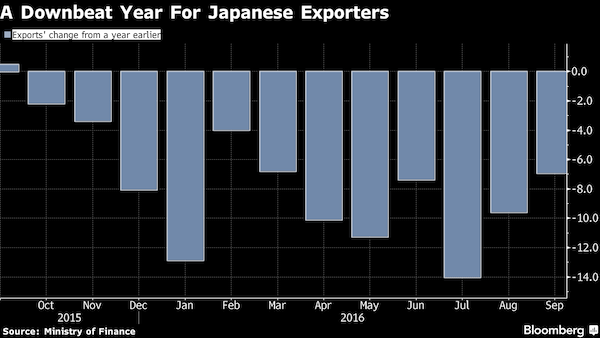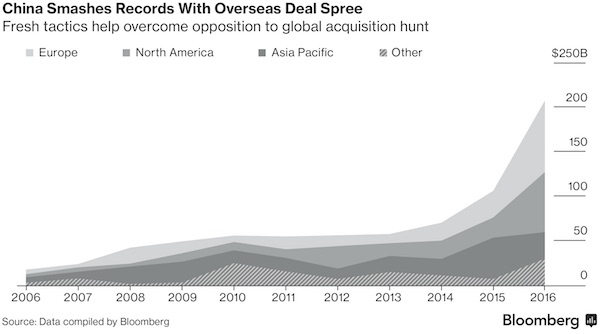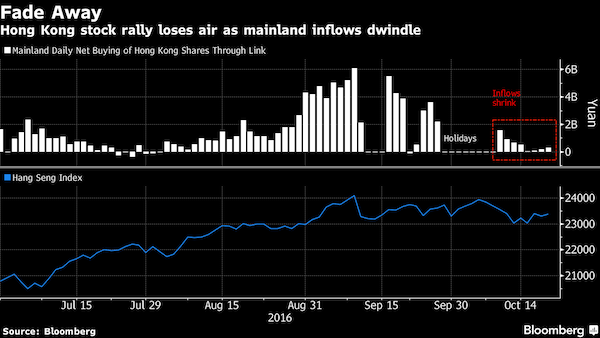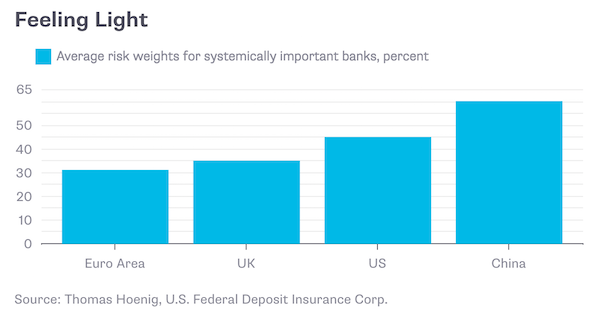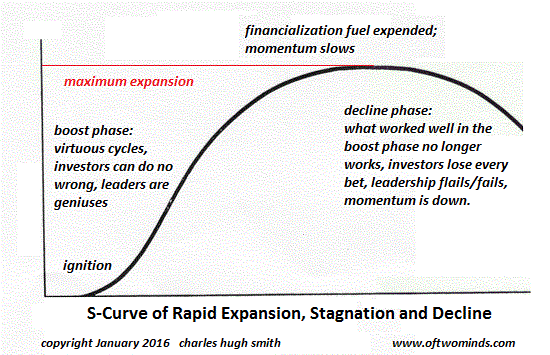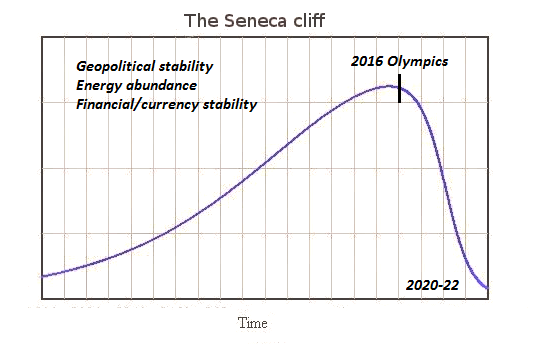
Edward Hopper Seven A.M. 1948

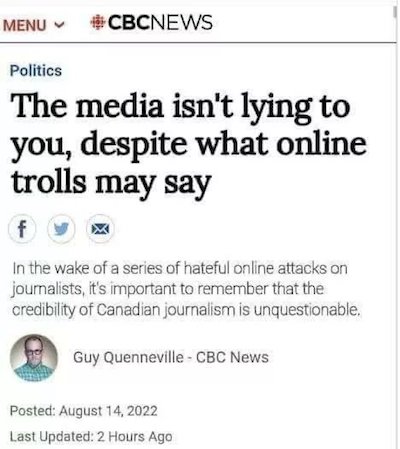

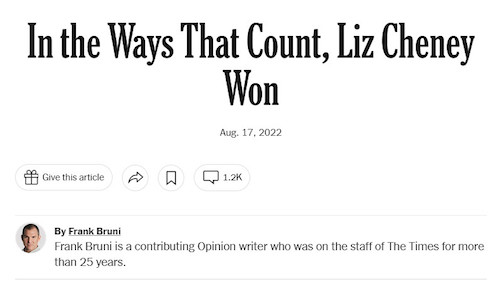







Stelter Biden
https://twitter.com/i/status/1560354199954653185

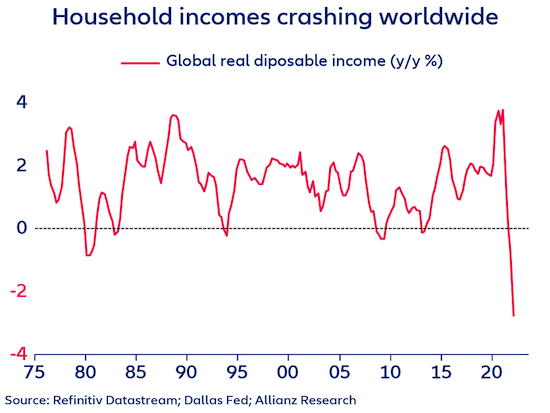

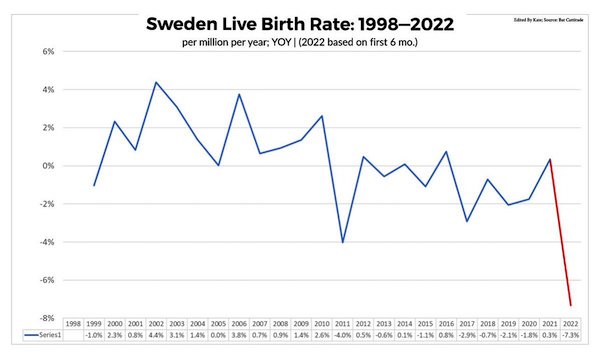

Malhotra
“From a reanalysis of Pfizer’s and Moderna’s original trial data it appears that one was more likely to suffer a serious adverse event from the vaccine, than they ever were to be hospitalised from covid. This changes everything.” – @DrAseemMalhotra pic.twitter.com/9yTVxOcgj0
— Eva Vlaardingerbroek (@EvaVlaar) August 17, 2022


Not just Moscow.
• Ukraine Planning Nuclear Provocation On Friday – Moscow (RT)
Ukraine plans to carry out artillery strikes on the Russia-controlled Zaporozhye nuclear power plant on Friday, and then accuse Russia of causing a disaster at the site, the Russian Defense Ministry said on Thursday. The predicted attack will be timed to coincide with the ongoing visit to Ukraine by UN Secretary General Antonio Guterres, the ministry claimed. The Russian ministry said it has detected movements of Ukrainian troops, indicating a looming “provocation.” Kiev has deployed units trained in responding to the use of weapons of mass destruction, pre-positioning them to report a radiation leak and demonstrate a purported action to mitigate it, Russian military spokesman Igor Konashenkov said.
The ministry said it expects a Ukrainian artillery unit to attack the plant on Friday from the city of Nikopol. “The blame for the consequences [of the strike] will be attributed to the Russian armed forces,” the statement said. In a separate statement on Thursday, Igor Kirillov, who heads Russia’s Nuclear Biological and Chemical Defense Troops, said his directorate has modeled possible scenarios for a disaster at the Zaporozhye plant. A plume of radioactive materials from the site may reach Poland, Slovakia and Germany, he warned. Russia has accused Ukraine of conducting frequent drone and artillery strikes against the nuclear power plant in the city of Energodar over the past few weeks.
Kiev has denied responsibility and said Russian forces were attacking the plant to discredit Ukraine. Ukrainian officials have also claimed that Russia is using the Zaporozhye facility as a military base. During the briefing, Konashenkov denied Ukrainian claims that Russia has deployed heavy weapons at the Zaporozhye plant and is attacking Ukrainian troops from the site. The only Russian troops at the facility are lightly armed guards providing physical security, the official said. The ministry pledged to do its best to prevent damage to the nuclear facility.
Gonzalo
The reasons are manifold:
◾️Cause a giant nuclear accident—and blame it on the Russians.
◾️An excuse for Zelensky and his goons to decamp to the West.
◾️An excuse for the US/NATO to give up on Ukraine.
◾️Forever ostracize Russia, so Europe never trades with her again.
2/
— Gonzalo Lira (@GonzaloLira1968) August 19, 2022

So does Erdogan.
• Russia Warns Of Another Chernobyl Over Ukraine’s Attacks (RT)
Ukraine’s ongoing attacks on the Russia-controlled Zaporozhye nuclear power plant may cause a far worse disaster for Europe than the current energy crisis, a Russian Defense Ministry official has warned. Igor Kirillov, who heads Russia’s Nuclear Biological and Chemical Defense Troops, illustrated the likely worst-case scenario of a direct hit on Europe’s largest nuclear plant, during a briefing on Thursday. He showed journalists a map, with plumes of radioactive material from the site reaching Poland, Slovakia, Romania, Moldova, Belarus and even Germany. He blamed Ukraine’s Western backers for trying to downplay the danger of targeting the atomic plant, and forgetting the lessons of the 1986 Chernobyl disaster and the 2011 Fukushima nuclear incident.
According to Kirillov, both disasters involved “the failure of support systems, the disruption of power supply and partial and complete shutdown of the cooling systems, which led to overheating of nuclear fuel and the destruction of the reactor”. The fallout of the Chernobyl disaster affected some 20 countries, while causing 4,000 deaths, a major spike in cancer cases, and the permanent relocation of around 100,000 people. The effects of the Fukushima nuclear incident might seem “insignificant” at first glance, but up to 500,000 people have abandoned their homes because of it, he noted. “Our experts believe that the actions of the Ukrainian armed forces may cause a similar situation at the Zaporozhye nuclear power plant,” Kirillov said.
Strikes by the Kiev forces could render the plant’s cooling systems and other support infrastructure inoperable, which would lead “to overheating of the core and, as a result, the destruction of reactor units at the largest nuclear power plant in Europe, with the release of radioactive substances into the atmosphere and their spreading for hundreds of kilometers,” he warned. “Such an emergency will cause mass migration of the population and will have more catastrophic consequences than the looming energy crisis in Europe,” the military official added. Moscow has accused Kiev of carrying out 12 attacks on the nuclear facilitity, which provides energy to both Russian- and Ukrainian-controlled areas, since mid-July.

“..given that the consequences of escalation could include a major war in Europe and possibly even nuclear annihilation, there is good reason for extra concern..”
• Playing With Fire in Ukraine (Mearsheimer)
Western policymakers appear to have reached a consensus about the war in Ukraine: the conflict will settle into a prolonged stalemate, and eventually a weakened Russia will accept a peace agreement that favors the United States and its NATO allies, as well as Ukraine. Although officials recognize that both Washington and Moscow may escalate to gain an advantage or to prevent defeat, they assume that catastrophic escalation can be avoided. Few imagine that U.S. forces will become directly involved in the fighting or that Russia will dare use nuclear weapons. Washington and its allies are being much too cavalier. Although disastrous escalation may be avoided, the warring parties’ ability to manage that danger is far from certain.
The risk of it is substantially greater than the conventional wisdom holds. And given that the consequences of escalation could include a major war in Europe and possibly even nuclear annihilation, there is good reason for extra concern. To understand the dynamics of escalation in Ukraine, start with each side’s goals. Since the war began, both Moscow and Washington have raised their ambitions significantly, and both are now deeply committed to winning the war and achieving formidable political aims. As a result, each side has powerful incentives to find ways to prevail and, more important, to avoid losing. In practice, this means that the United States might join the fighting either if it is desperate to win or to prevent Ukraine from losing, while Russia might use nuclear weapons if it is desperate to win or faces imminent defeat, which would be likely if U.S. forces were drawn into the fighting.
Furthermore, given each side’s determination to achieve its goals, there is little chance of a meaningful compromise. The maximalist thinking that now prevails in both Washington and Moscow gives each side even more reason to win on the battlefield so that it can dictate the terms of the eventual peace. In effect, the absence of a possible diplomatic solution provides an added incentive for both sides to climb up the escalation ladder. What lies further up the rungs could be something truly catastrophic: a level of death and destruction exceeding that of World War II.
Putin premeditated
‼️ I Want To Emphasise This‼️ pic.twitter.com/vmoWhqtVEi
— Ignorance, the root and stem of all evil (@ivan_8848) August 18, 2022

“He pointed to “the Chinese, Indians, Brazilians, South Africa, the Arab world, Africa” as regions not supporting the Western line on the conflict.”
• Ukraine Conflict Could End Western Hegemony – Hungary (RT)
The deadly conflict in Ukraine has the potential to “demonstratively” put an end to Western hegemony globally, Hungarian Prime Minister Viktor Orban has claimed. In an interview with German online magazine Tichys Einblick, published on Thursday, Orban said he expects the European Union to emerge weaker in the global arena once the fighting in Ukraine is over. The Hungarian leader argued that the West is incapable of winning the conflict militarily, and that the sanctions it has imposed on Moscow have failed to destabilize Russia. To make matters worse, the punitive measures have spectacularly backfired on Europe, he said. Orban also noted that a “large part of the world” is clearly not getting behind the US when it comes to Ukraine.
He pointed to “the Chinese, Indians, Brazilians, South Africa, the Arab world, Africa” as regions not supporting the Western line on the conflict. “It is quite possible that it will be this war that will demonstratively put an end to Western supremacy,” Orban said. On the other hand, non-EU powers are already benefiting from the situation, he said, pointing toward Russia, which “has its own energy sources.” The premier noted that while EU energy imports from Russia have plummeted, Russia’s majority state-owned gas giant Gazprom has seen its revenues skyrocket.
Beijing, too, is now better off than before the start of the conflict, Orban claimed. He explained that China had previously been “at the mercy of the Arabs,” but is not anymore, apparently referring to the oil market. The other beneficiaries, in the Hungarian prime minister’s view, are “big American corporations.” To prove his point, Orban pointed to profits doubling for Exxon, quadrupling for Chevron and increasing six-fold for ConocoPhillips. While going along with EU sanctions against Russia, Hungary has maintained a neutral stance since the outbreak of the conflict, by not providing either side with weapons or making any harsh statements against Moscow or Kiev. Budapest has insisted that it cannot not risk the security of Hungarians, and will not be dragged into the conflict.

Last chance for the west to talk peace and prevent their ecoomies from freezing.
• Xi and Putin Confirmed For November’s G20 Summit In Bali (AlJ)
Chinese and Russian presidents Xi Jinping and Vladimir Putin have both confirmed they will attend the G20 summit on the resort island of Bali this November, according to President Joko Widodo. “Xi Jinping will come. President Putin has also told me he will come,” Widodo told Bloomberg News in an interview, confirming their attendance for the first time. The November summit will mark the first time that Putin, Xi and United States President Joe Biden will have met in person since Russia invaded Ukraine in February, triggering sanctions from Western countries as well as G20 members Japan and South Korea. China has avoided condemning the attack or joining the sanctions, which took place days after Beijing and Moscow announced a “no limits” partnership. A longtime adviser to the Indonesian president also confirmed Putin and Xi would attend the summit.
“Jokowi told me that Xi and Putin are both planning to attend in Bali,” Andi Widjajanto, who heads the National Resilience Institute, told the Reuters news agency. The Kremlin said in a statement that Putin and Widodo had discussed preparations for the G20 summit in a phone call on Thursday without confirming that the Russian leader would attend. Another official familiar with the situation told Bloomberg that Putin plans to attend the meeting in person. A trip to Bali would be significant given it would be Xi’s first time outside China since the start of the pandemic in early 2020. China has maintained a strict zero-COVID policy that has all but sealed its borders, and Xi is preparing to secure an unprecedented third term as president during the congress of the ruling Communist Party, which is expected to take place in late October or early November.
Chinese officials are also thought to be making plans for a meeting in Southeast Asia between Xi and US President Joe Biden, who will also be in Bali, according to the Wall Street Journal, amid rising tension between the two countries. As head of the G20 this year, Indonesia has faced pressure from Western countries to withdraw its invitation to Putin because of the invasion of Ukraine, which he has called a “special military operation”. Indonesia has also invited Ukrainian leader Volodymyr Zelenskyy to the Bali summit. Widodo has sought to position himself as a mediator, and at the end of June travelled first to Moscow and then to Kyiv to meet both presidents and urge an end to the war. This week, he said both countries have accepted Indonesia as a “bridge of peace”.

Supersonic jets with hypersonic missiles.
• Russia Deploys MiG Jets Armed With Hypersonic Missiles To Kaliningrad (ZH)
Russia’s defense ministry announced Thursday that it has deployed fighter planes equipped with cutting edge hypersonic missiles to its Baltic region exclave of Kaliningrad, which a statement said will provide “additional measures of strategic deterrence.” The statement detailed that three MiG-31 fighters armed with Kinzhal hypersonic missiles have landed at the Chkalovsk air base in Kaliningrad Oblast. The defense ministry emphasized that the warplanes will be put on “round-the-clock alert” – at a moment tensions with Ukraine’s powerful Western backers like the United States continue to soar. On a few alleged occasions over the last six months of war in Ukraine, Russia has been accused of launching hypersonic missiles on Ukrainian targets; however, the Pentagon has downplayed that it’s not a gamechanger.
But such an intentionally publicized move as placing hypersonic missile armed MiG fighters on “alert” at Russia’s Baltic outpost is an escalatory move aimed at NATO and Ukraine’s Western backers which have been ramping up longer-range missile and weapons shipments to Kiev. Kaliningrad borders NATO members Poland and Lithuania, both of which will see this move as a severe threat to their national security. The Associated Press is reporting that Finland is alarmed its airspace may have been violated by the MiGs as they were en route to the Kaliningrad base: A video released by the Defense Ministry showed the fighters arriving at the base but not carrying the missiles, which were apparently delivered separately.
Finland’s Defense Ministry said Thursday that two Russian MIG-31 fighter jets were suspected of having violating Finnish airspace in the Gulf of Finland off the southern town of Porvoo, west of Helsinki. The Nordic country’s Border Guard started a preliminary investigation into the incident. sThe Russian MoD and state media released video of the MiG fighters arriving in Kaliningrad. Ukraine government-linked officials have also highlighted the transfer with alarm…

View from the dark ages:
“..a campaign of genocide aimed at erasing the Ukrainian nation from the map..”
• US Must Arm Ukraine Now, Before It’s Too Late (Hill)
Nearly 20 of our fellow experts and national security professionals — whose digital signatures appear at the end of this op-ed — agree: The war in Ukraine has reached a decisive moment and that vital U.S. interests are at stake. Long before the Kremlin first invaded Ukraine in 2014, we have — from senior positions in the U.S. government and military — followed Moscow’s foreign policy and the grave dangers it presents to the United States and our allies. We have carefully watched Moscow’s major offensive since February and the response of the Biden administration and its allies and partners. We have maintained close touch with Ukrainian, U.S. and European officials. Two of us just returned from meetings with Ukraine’s defense and military leaders.
Although the Biden administration has successfully rallied U.S. allies and provided substantial military assistance, including this month, to Ukraine’s valiant armed forces, it has failed to produce a satisfactory strategic narrative which enables governments to maintain public support for the NATO engagement over the long term. By providing aid sufficient to produce a stalemate, but not enough to roll back Russian territorial gains, the Biden administration may be unintentionally seizing defeat from the jaws of victory. Out of an over-abundance of caution about provoking Russian escalation (conventional as well as nuclear), we are in effect ceding the initiative to Russian President Vladimir Putin and reducing the pressure on Moscow to halt its aggression and get serious about negotiations.
Moscow’s imperialist war against the people of Ukraine is not just a moral outrage — a campaign of genocide aimed at erasing the Ukrainian nation from the map — but a clear danger to U.S. security and prosperity. American principles and interests demand the strongest possible response, one sufficient to force the Russians as much as possible back to pre-February lines and to impose costs heavy enough to deter Russia from invading a third time. With Russian forces struggling to regroup in the east and stave off Ukrainian efforts to retake Kherson in the south, now is the time for Ukraine’s allies to pull out all the stops by providing Ukraine the means it needs to prevail. Dragging out the conflict through so-called strategic pauses will do nothing but allow Putin to regroup, recover and inflict more damage in Ukraine and beyond.
But so far, neither the administration nor European allies have succeeded in making clear why this is important to the United States and the West. It is important because Putin is pursuing a revisionist foreign policy designed to upend the rules-based security system that has ensured American and global stability and enabled prosperity since the end of World War II. Putin’s aggressive designs do not end in Ukraine. As Russian officials have repeatedly made clear, if Russia wins in Ukraine, our Baltic NATO allies are at risk, as are other allies residing in the neighborhood. Prudent policy today identifies tomorrow’s risk and seeks the right place and time to deal with that risk. For the U.S. and NATO, that time is now — and the place is Ukraine, a large country whose population understands that its choice is either defeating Putin or losing their independence and even their existence as a distinct, Western-oriented nation. With the necessary weapons and economic aid, Ukraine can defeat Russia.

“Thousands of fighters from Poland, Canada, the US, the UK and other countries..”
• Dozens Of Foreign Fighters Eliminated In Strike On Ukrainian Base – Russia (RT)
Dozens of foreign mercenaries, fighting for Kiev against Moscow, have been killed in an attack on a compound in the city of Kharkov in northeastern Ukraine, Russia’s Defense Ministry said on Thursday. “A temporary base of foreign mercenaries in the city of Kharkov was hit with a ground-based high-precision weapon. More than 90 militants were killed,” ministry’s spokesman Lieutenant General Igor Konashenkov announced during his daily briefing. The Russian Air Force also struck Ukrainian manpower and military hardware in Kherson and Nikolaev Regions, eliminating 80 combatants and injuring 50 others, he added. Compounds, hosting foreign mercenaries in Ukraine, have already been targeted by Russia several times this month, leading to multiple casualties.
Thousands of fighters from Poland, Canada, the US, the UK and other countries responded to a call by President Vladimir Zelensky and flocked to Ukraine. In April, the Russian military estimated their numbers at nearly 7,000. However, last month it said that only 2,741 foreign fighters remained in Ukraine. Many of them were killed, while others fled to their home countries and later complained about chaos in the ranks of the Kiev forces, and a lack of arms and other equipment. Konashenkov had earlier warned that mercenaries aren’t viewed as combatants under international law and “the best thing that awaits them if they are captured alive is a trial and maximum prison terms.”

“the use of the nuclear arsenal is possible only in response to an attack as a self-defense measure and in extreme circumstances..”
• Russia Explains Terms For Nuclear Arms Use (RT)
Russia is a responsible nuclear power and will only use its nuclear arms if attacked with weapons of mass destruction or if its existence is under threat, a spokesman for the country’s foreign ministry has said. Meanwhile, some Western officials argue that nukes can play a role on the battlefield, Ivan Nechaev added. According to Russia’s official nuclear posture,“the use of the nuclear arsenal is possible only in response to an attack as a self-defense measure and in extreme circumstances,” the deputy press secretary of the ministry said during a daily briefing on Thursday. The diplomat was responding to a question about the risk of nuclear escalation in the conflict with Ukraine. Russia is not in the habit of “saber-rattling, especially with nuclear weapons,” he said.
Moscow is determined to keep the situation in Ukraine conventional and has no need to use a nuclear option in Ukraine, Nechaev asserted. He lamented that the leaders of Western powers have become far less responsible than their Cold War-era predecessors when it comes to deterrence issues. “The liberal-globalist circles think it possible to discuss lowering the benchmark for the use of nuclear weapons,” he said, citing NATO Secretary General Jens Stoltenberg as one example. The Russian Defense Ministry has repeatedly reassured that its goals in Ukraine can be achieved without the use of nuclear arms. Deploying them would not make any military sense, Defense Minister Sergey Shoigu said this week.

” The entire Russian military is trained, and well trained, to operate in a hostile nuclear, chemical or bacteriological environment.”
• Sabotage, Terroristm, Diversionary Attacks Are A Real Risk For Russia (Saker)
The only thing Russians can do is to 1) prepare for a very long counter-intelligence and counter-diversionary operations lasting many years and 2) accept the reality of war for what it is and not freak out the next time the Ukronazis blow up something, be it a ship, a train, an aircraft, a bridge or any other target in the LDNR or Russia. The one good news the Russians also need to keep in mind is that most of such diversionary/terrorist attacks are still fundamentally part of PSYOPs and are mostly designed for PR effect. In terms of their actual impact on Russian military capabilities, it is close to zero, just like the Israeli strikes in Syria have made exactly *zero* difference on the ground in Syria.
To really affect military operations you need to have a large, viable and sophisticated partisan/”stay behind” force, which the Ukrainians do not have, not by a long margin. Also, to really affect military operations, such diversionary tactics need to be carefully coordinated with “regular” friendly military forces (like the Soviet partisans during WWII who closely worked with the Soviet armed forces). So yes, this is a problem, a very unpleasant one, one which will be hard to deal with, but not one which will affect Russian military operations. Even if the Ukronazis blow up both the Chernobyl AND Zaporozhiie NPs, this will not significantly affect the SMO or even the war between Russia and the united West. The entire Russian military is trained, and well trained, to operate in a hostile nuclear, chemical or bacteriological environment.
As for Russian logistics, they are extremely sophisticated and highly redundant, so even if the Ukronazis blow up one node of the resupply network, it will be quickly fixed and/or easily replaced or bypassed. That being said, I would personally recommend that we all mentally prepare for what is almost certainly about to happen in the not too distant future. If we understand what such operation can and cannot achieve we will see them in a sober, pragmatic way, and not cave in to the hysterics (by many sides, including the Russian 6th column) which will inevitable follow any such attack.

“..Erdogan – always willing to chart a different course – has positioned Turkey as a mediator…”
• Sleepy Greek Port Becomes US Arms Hub (NYT)
It is an unlikely geopolitical flashpoint: a concrete pier in a little coastal city, barely used a few years ago and still occupied only by sea gulls most of the time. But the sleepy port of Alexandroupoli in northeastern Greece has taken on a central role in increasing the US military presence in Eastern Europe, with the Pentagon transporting enormous arsenals through here in what it describes as the effort to contain Russian aggression. That flow has angered not only Russia but also neighboring Turkey, underlining how war in Ukraine is reshaping Europe’s economic and diplomatic relationships. Turkey and Greece are both NATO members, but there is long-standing animosity between them, including conflict over Cyprus and territorial disputes in the Mediterranean, and Turkey sees a deeper relationship between Greece and Washington as a potential threat.
The spike in military activity has been welcomed by the government of Greece, most of its Balkan neighbors and local residents, who hope that Americans will stimulate the regional economy and provide security amid rising regional tensions. “We’re a small country,” said Yiannis Kapelas, 53, an Alexandroupoli cafe owner. “It’s a good thing to have a big country to protect us.” Raising the strategic stakes is the impending sale of the Alexandroupoli port. Four groups of companies are competing to buy a controlling stake – two include American firms, backed by Washington, and two have ties to Russia. US military operations in Greece have expanded greatly since Russia invaded Ukraine in February, and top officials from Russia and Turkey have called that a national security threat.
“Against whom were they established?” President Recep Tayyip Erdogan of Turkey said in June, referring to the US military outposts in Greece. “The answer they give is ‘against Russia.’ We don’t buy it.” While most of NATO has sided emphatically with Ukraine, Erdogan – always willing to chart a different course – has positioned Turkey as a mediator. In May, the Greek Foreign Ministry said Turkish fighter jets violated the country’s air space over Alexandroupoli, 11 miles from the Turkish border. The incident unnerved local residents concerned with Turkey’s claims to parts of Greece. The complex interplay of interests at Alexandroupoli highlights how the war is shifting the strategic focus of Europe to the Black Sea region.
“The Black Sea is back on the global agenda in an unprecedented way,” said Ilian Vassilev, a former Bulgarian ambassador to Moscow who now works as a strategic consultant. “Security in the Black Sea is central to the issue of how you contain and deal with Russia.” Greece and Russia share deep historical, economic and cultural ties centered on the common Orthodox Christian religion. Greeks are among the few Europeans who largely want to maintain economic ties to Russia, polls show. But the war in Ukraine has badly strained those bonds.

‘For’, not ‘In’.
• Winter Is Coming For Europe (Bill Blain)
Vladimir Putin could not have planned or executed his crippling energy strike on Europe better. While we promise ourselves Western Sanctions must be impacting Russia, the reality is Europe’s problems are about to get much, much worse through the run up to Winter. What possible incentives does Russia have to increase Nord Stream 1 supplies from their current 20% of capacity? They can feed Europe 1/6 of the Energy they delivered in January this year, and still make as much – selling the rest to the very many nations that have failed to condemn to assault on Ukraine. They may decide to cut supplies completely even as planned maintenance in Norway’s gas infrastructure cuts supplies. A dismal European winter is coming, and European politicians will do anything to avert it.
That will include appeasement – putting pressure on Ukraine to come to a deal with Russia that allows Putin to end the war looking like he achieved something. It would be a major long-term blow to Europe – knowing we’d had to cut a deal with the Devil, and would not immediately solve the West’s reliance on Russian power. (It could take 3 years before Europe can eliminate its reliance of Russian gas with new gas distribution infrastructure – but it can be done!) Power cuts, factory closures, business crisis already appear nailed on. It’s difficult to contemplate German workers welcoming job losses and stagflation, plus the expectation they pay the costs of Southern Europe to cope with the Energy war – but that’s effectively the ECB strategy: to balance European debt market credibility with German money to support Italy’s debt weakness.
While there may be many good reasons and indications to accept the US economy has already passed the nadir of economic woe for this year, the instability engendered by rising European energy prices, the threat of autumnal and winter power outages, combined with rising industrial strife across Europe as inflation and power trigger rising wage demands… means the whole Western Economy is going to struggle. It’s difficult to envisage the US market thriving when Europe is suffering a potentially crippling winter of stagflation and economic strife.

“Every spare molecule we can find, we are shipping to the Eurozone..”
• EU Gas Prices Seven Times Higher Than In US – CNN
European natural gas prices are trading at levels equivalent to about $70 per million British Thermal Unit (BTUs), which is roughly seven times higher than prices in the United States, CNN reported on Wednesday, citing Lipow Oil Associates. Analysts told the outlet that Europe’s natural gas crisis is contributing to higher prices in America, noting however that it’s not the main driver. US natural gas prices have surged to levels unseen since 2008, closing at $9.33 per million BTU on Tuesday. “Higher global prices are trickling down to the US. Natural gas has become a global commodity with the emergence of LNG,” said Rob Thummel, senior portfolio manager at Tortoise Capital Advisors.
The United States has stepped up its exports of LNG to Europe in an effort to mitigate the impact of declining flows from the continent’s major natural gas supplier, Russia. “Every spare molecule we can find, we are shipping to the Eurozone,” Robert Yawger, vice president of energy futures at Mizuho Securities, said. European gas prices have quadrupled since the start of the year on thinning Russian flows. This week, the cost of gas futures on the TTF hub in the Netherlands exceeded $2,600 per thousand cubic meters for the first time since March. Prices are forecast to spike 60% this winter, exceeding $4,000 per thousand cubic meters.

Same people. It’s a big club, and Trump’s not in it.
• FBI Unit Leading Mar-a-Lago Probe Earlier Ran Russiagate Hoax (Sperry)
The FBI division overseeing the investigation of former President Trump’s handling of classified material at his Mar-a-Lago residence is also a focus of Special Counsel John Durham’s investigation of the bureau’s alleged abuses of power and political bias during its years-long Russiagate probe of Trump. The FBI’s nine-hour, 30-agent raid of the former president’s Florida estate is part of a counterintelligence case run out of Washington – not Miami, as has been widely reported – according to FBI case documents and sources with knowledge of the matter. The bureau’s counterintelligence division led the 2016-2017 Russia “collusion” investigation of Trump, codenamed “Crossfire Hurricane.”
Although the former head of Crossfire Hurricane, Peter Strzok, was fired after the disclosure of his vitriolic anti-Trump tweets, several members of his team remain working in the counterintelligence unit, the sources say, even though they are under active investigation by both Durham and the bureau’s disciplinary arm, the Office of Professional Responsibility. The FBI declined to respond to questions about any role they may be taking in the Mar-a-Lago case. In addition, a key member of the Crossfire team – Supervisory Intelligence Analyst Brian Auten – has continued to be involved in politically sensitive investigations, including the ongoing federal probe of potentially incriminating content found on the abandoned laptop of President Biden’s son Hunter Biden, according to recent correspondence between the Senate Judiciary Committee and FBI Director Christopher Wray.
FBI whistleblowers have alleged that Auten tried to falsely discredit derogatory evidence against Hunter Biden during the 2020 campaign by labeling it Russian “disinformation,” an assessment that caused investigative activity to cease. Auten has been allowed to work on sensitive cases even though he has been under internal investigation since 2019, when Justice Department Inspector General Michael Horowitz referred him for disciplinary review for his role in vetting a Hillary Clinton campaign-funded dossier used by the FBI to obtain a series of wiretap warrants to spy on former Trump campaign adviser Carter Page. Horowitz singled out Auten for cutting a number of corners in the verification process and even allowing information he knew to be incorrect slip into warrant affidavits and mislead the Foreign Intelligence Surveillance Act court.

In praise of the Inflation Reduction Act?!
• Big Pharma Spent $205 Million In 2 Years Lobbying vs Lower Drug Prices (CHD)
As the Inflation Reduction Act heads to President Biden’s desk that includes long overdue authority for Medicare to negotiate lower prescription drug prices with big drug companies, an analysis from Accountable.US found the pharmaceutical industry has spent at least $205 million in recent years lobbying and resisting lower drug prices for seniors and families. This includes over $57 million in paid ads PhRMA (the Pharmaceutical Research and Manufacturers of America, a lobbying group) and its allies ran against Medicare drug negotiations over the last year. According to Liz Zelnick, Accountable.US Spokesperson:

“Big Pharma spent massive sums to maintain the broken status quo where drug companies could charge whatever they please while millions of seniors are left to choose between food and medicine. Medicare finally being allowed to harness its bulk purchasing power will save lives. “The same big drug companies that claim they can’t afford to offer fairer prices have continued to break profit records and enrich a small group of wealthy investors on the backs of patients in need for years — all while paying virtually nothing in taxes. Industry opposition to lower drug prices has always been about squeezing maximum profits out of vulnerable consumers. Luckily their efforts failed, and the American people won. “The Inflation Reduction Act is a case study in how change demanded by Americans for years didn’t come easily in the face of powerful and greedy special interests with plenty of lawmakers in their pockets — but it’s possible.”
The analysis follows Accountable.US’ recent findings that major drug company CEOs have raked in over $292.6 million in compensation while their companies saw skyrocketing profits — at a time Americans spend an average of $1,200 per person on prescription drugs and as many as 18 million Americans simply cannot afford their prescribed medications. The government watchdog also previously found Republican lawmakers on the House Energy & Commerce Committee who voted against allowing Medicare to negotiate the prices of prescription drugs with drug companies (H.R. 3) have taken nearly $1.7 million in career contributions from industry groups and the five largest pharmaceutical companies opposed to Medicare drug negotiations.
Aus vaccines
https://twitter.com/i/status/1560018943737303041

Discuss!!
• 1,200 Scientists and Professionals Say “There is No Climate Emergency” (DS)
The political fiction that humans cause most or all climate change and the claim that the science behind this notion is ‘settled’, has been dealt a savage blow by the publication of a ‘World Climate Declaration (WCD)’ signed by over 1,100 scientists and professionals. There is no climate emergency, say the authors, who are drawn from across the world and led by the Norwegian physics Nobel Prize laureate Professor Ivar Giaever. Climate science is said to have degenerated into a discussion based on beliefs, not on sound self-critical science. The scale of the opposition to modern day ‘settled’ climate science is remarkable, given how difficult it is in academia to raise grants for any climate research that departs from the political orthodoxy.
Another lead author of the declaration, Professor Richard Lindzen, has called the current climate narrative “absurd”, but acknowledged that trillions of dollars and the relentless propaganda from grant-dependent academics and agenda-driven journalists currently says it is not absurd. Particular ire in the WCD is reserved for climate models. To believe in the outcome of a climate model is to believe what the model makers have put in. Climate models are now central to today’s climate discussion and the scientists see this as a problem. “We should free ourselves from the naïve belief in immature climate models,” says the WCD. “In future, climate research must give significantly more emphasis to empirical science.” Since emerging from the ‘Little Ice Age’ in around 1850, the world has warmed significantly less than predicted by the IPCC on the basis of modelled human influences.
“The gap between the real world and the modelled world tells us that we are far from understanding climate change,” the WCD notes. The Declaration is an event of enormous important, although it will be ignored by the mainstream media. But it is not the first time distinguished scientists have petitioned for more realism in climate science. In Italy, the discoverer of nuclear anti-matter Emeritus Professor Antonino Zichichi recently led 48 local science professors in stating that human responsibility for climate change is “unjustifiably exaggerated and catastrophic predictions are not realistic”. In their scientific view, “natural variation explains a substantial part of global warming observed since 1850”. Professor Zichichi has signed the WCD.







B,S&T
https://twitter.com/i/status/1560120044402921473



Recursion
https://twitter.com/i/status/1559866660638654464

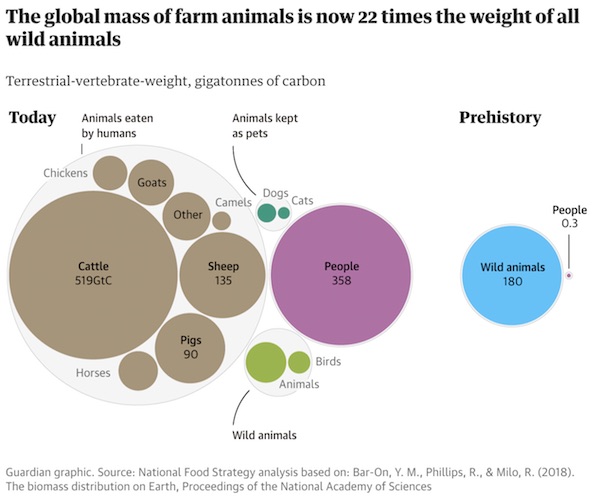




Support the Automatic Earth in virustime with Paypal, Bitcoin and Patreon.





